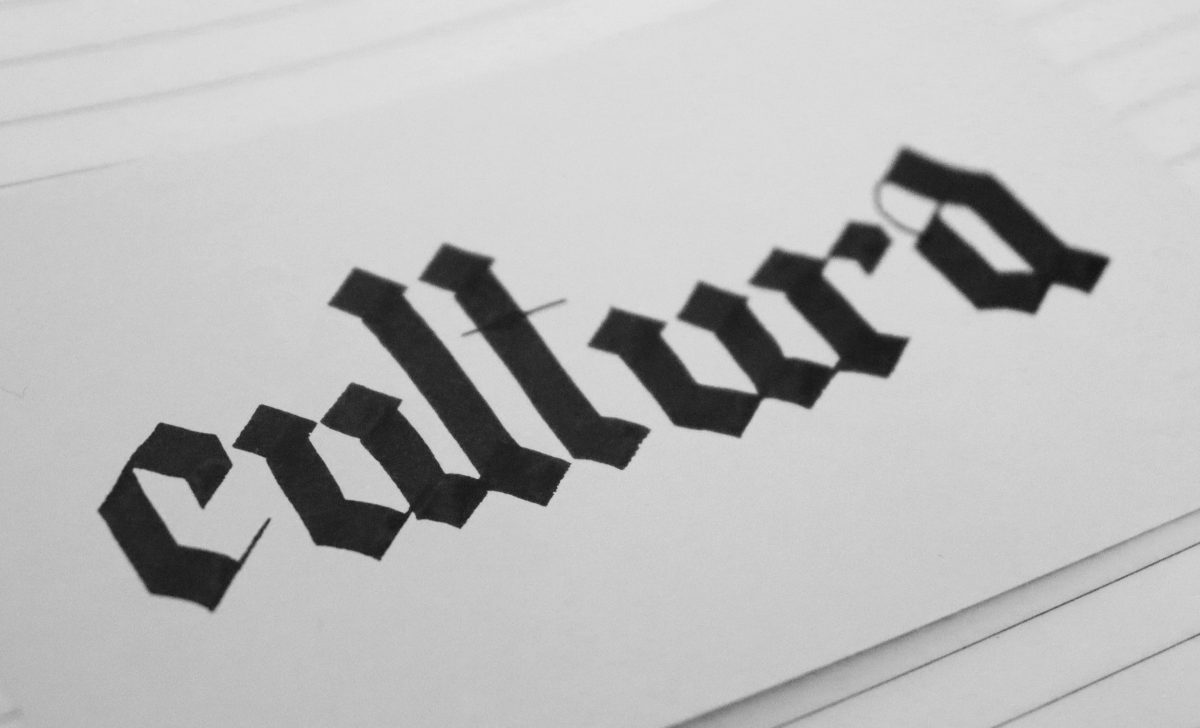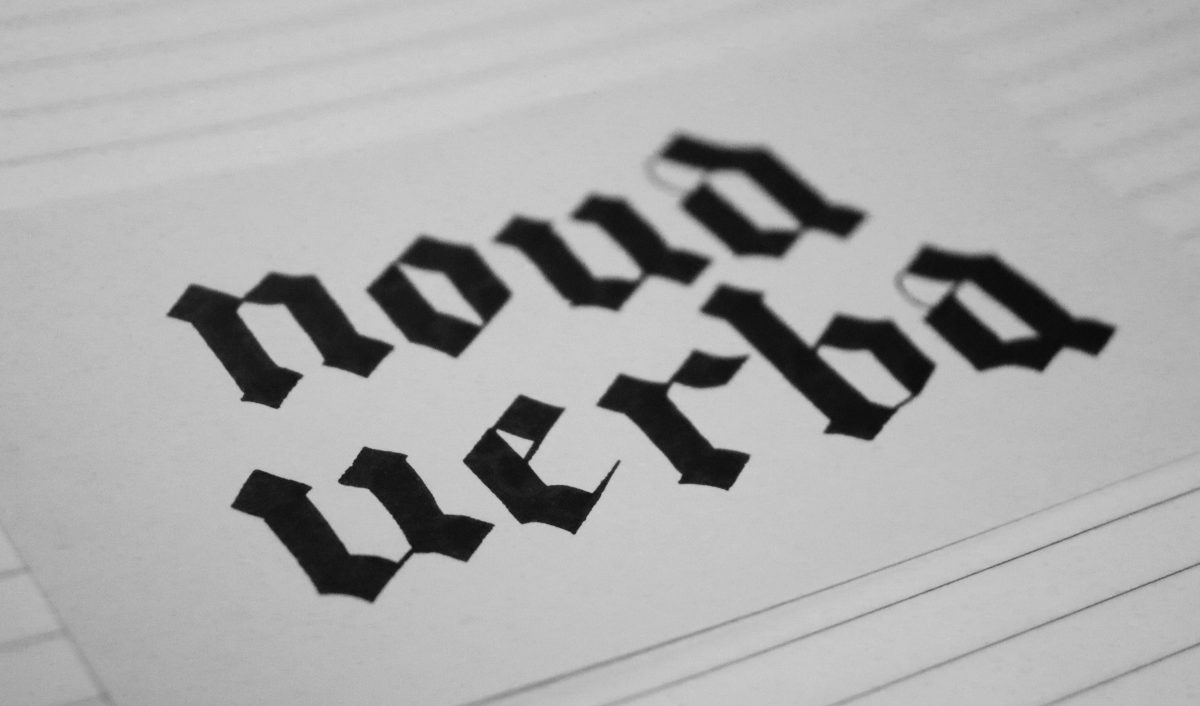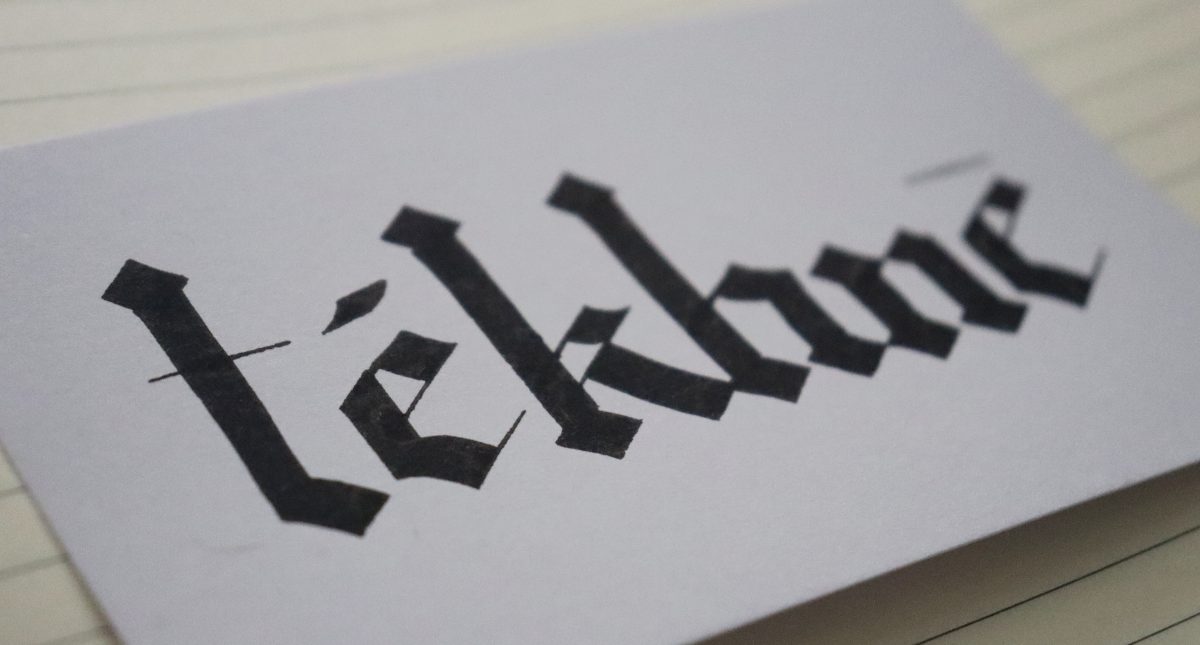Almost every week nowadays, I marvel at the things not taught to me when I was in the education system.
It’s a common refrain – ‘Why aren’t they teaching this?’, ‘Why aren’t they teaching that?’ – but I mean it in an even deeper sense. It’s not just that there are certain things that are not taught – they’re not even mentioned. An example of this is Anglo-Saxon history. I was taught nothing about Anglo-Saxon history when I was in school. This is astonishing given that the Anglo-Saxons were the start of the English – all of the history of the British Isles before that is British history but not English history. But even more than that, in the entire five years I spent at secondary school, I don’t think the term ‘Anglo-Saxon’ was mentioned even once.
There are also many examples of things not being taught or even mentioned from my university education. I could write hundreds of blog posts (not an exaggeration) about how low quality my university education was – there’s no point trying to cover it all here. But in addition to many utterly bizarre choices in course structure, there were hundreds of important things that were never even mentioned. In physics we were not taught the conceptual framework around waves properly to understand radiation pressure or the derivation of the black-body spectrum curve; we were not taught Minkowski diagrams properly; we weren’t taught measurement and uncertainty properly. In mathematics we were not taught matrices properly, or the principles of limits. We didn’t even really do complex numbers properly, though we did do a lot with them. The way we were taught quantum mechanics was utterly abysmal. And we were taught absolutely nothing about the history of physics.
I could go on and on and on, but that’s not what this post is about. It is in the time since leaving the education system that I have learned about these things. Everything I know about Anglo-Saxon history – which, of course, went into the writing of On The Subject Of Trolls – I have learned myself.
If you have grown up in Britain around the same time as me (I am a millennial), you will have heard the word ‘chivalry’ thrown around from time to time. You of course know that it has something to do with mediæval knights – it was some sort of practice that they had or ideal that they strove towards. You will have heard the word ‘chivalry’ used to refer to certain kinds of behaviour in the modern age – usually things as drab as holding doors open for people. You will also have heard the word used by feminists. Over the last 30 years, they have typically used it in a derogatory sense, referring to actions or behaviours that they consider to be outdated and offensive to their belief system.
All of this – everything that has been said of ‘chivalry’ in popular culture in the last 30 years (at least) is wrong. Not only is it wrong, it is completely wrong. It doesn’t even get the basic ideas of what actual chivalry is right.
I have recently been reading a book on heraldry. This book makes reference to other works as it goes along, and at one point – quite early on – it describes a book called The Book of the Order of Chivalry. This book was written in the 1200s, and it describes exactly what chivalry was supposed to be, and what knights were supposed to do. I had no idea that there even was such a book. What’s more, The Book of the Order of Chivalry was apparently considered to be the standard text describing what chivalry was for a very long time. What an extraordinary thing – that there is a definitive text telling those who aspire to be knights what a knight was and what chivalry was!
When I saw this a few weeks ago, I was already complaining in my head of how this wasn’t ever mentioned to me while I was in the education system. I looked around online to see if I could read it – for old texts, very often you can read a scan of them somewhere online. I went onto Amazon to see if I could buy a modern copy of the book – and I could – there was a modern translation of the book available. (Not so modern as to be affected by the rot that is currently creeping through academia.) I bought it.
The Book of the Order of Chivalry is not a long book – in the translation that I have, it doesn’t even pass fifty pages. But when I was reading through it, it was nothing short of enlightening. And I don’t mean that in an exaggerative sense – reading it was as though the light of knowledge was shining into my mind.
Chivalry is an entire system for producing persons of good character – persons who are well trained in the various martial arts of a knight, and so are very physically capable, but who are also learned, and so very mentally capable. It is a system that, through the production of such persons, produces a good and orderly society. It also contains methods of self-regulation – necessary for when someone comes along who tries to subvert the system.
Although The Book of the Order of Chivalry was written in the 1200s and is specifically about knights, and those who wish to become them, many of the prescriptions it gives about how knights should be could apply to anyone, in any time period, who wants to be a good person or build a good society. That’s one of the things that was so fantastic about it – huge parts of it are completely relevant to life today. Some of it appears to be astonishingly prescient – there are problems that exist in the world today that this book has the solution to. And this is what makes it downright outrageous that this book has seemingly been hidden from us in the modern age – the solutions to many problems that exist today – sometimes very specific problems – have been known for centuries.
Take the following paragraph from the translation by Noel Fallows:
The king or prince who unmakes the Order of Chivalry itself not only unmakes himself as a knight, but also the knights who are subordinate to him who, because of the bad example set by their lord and so that they will be loved by him and follow his evil ways, do what does not pertain to Chivalry or its Order.
Ramon Llull, The Book of the Order of Chivalry
In other words, if any knight acts in a way that is not in accordance with true Chivalry, he not only unmakes himself as a knight, but also all of the knights he trains or is in command of.
This is a principle that is relevant not only to Chivalry, but to any organisational structure, in any time period.
Take another paragraph:
If the squire should be dubbed a knight because of fineness of features or a well-built, well-proportioned body, or because he has fair hair or carries a mirror in his purse […] you debase and diminish the Order of Chivalry.
Ramon Llull, The Book of the Order of Chivalry
What an amazing thing to read! Don’t just reward people with status and power because they are good-looking – it’s a principle that can apply to every society in every time period.
Take another one:
The prideful, ill-mannered squire who speaks and dresses crudely, has a cruel heart, is avaricious, mendacious, disloyal, slothful, irascible, lustful, drunken, gluttonous or perjurious, or who has other vices similar to these, is not suited to the Order of Chivalry.
Ramon Llull, The Book of the Order of Chivalry
To how many people does this apply today! Every week there seem to be more and more people who could be described in this way. And not only are they not suited to the Order of Chivalry, they are not suited to any position where they have any influence – particularly positions of cultural influence, which they seem to currently occupy.
Here’s another:
Do not seek nobility of courage in the mouth, for it does not always tell the truth, and do not seek it in resplendent vestments, for beneath many a resplendent cloak there is a base and weak heart filled with evil and deceit.
Ramon Llull, The Book of the Order of Chivalry
I would like to give more quotes from the book, but I fear I could very easily pass the threshold of fair use. This book is filled with good advice on how to be, how to act, how to live, how to learn, how to teach, how to train, who to trust, who to grant status, how society should be.
Chivalry – true Chivalry – is not just a few trite mannerisms – it is not just a set of pedantic rules for small actions. It is an entire way of life – and one designed to improve society. It is a tragedy that we have forgotten what it is.
It’s worth mentioning that Llull is adamant that you cannot be a knight unless you are a Christian – nothing truly chivalrous can follow without that. I am a staunch atheist. In the era of New Atheism, I was a more combative one (which was of course a big part of what New Atheism was), but nowadays I am not, and I find those who retain that combativeness towards Christianity to be rather cliché and tiresome now – it’s not needed anymore. So I can appreciate the value of the ideas in this book without being a Christian. At the same time, it’s interesting how Llull often writes about the importance of using reason and scientific knowledge (‘scientific’ perhaps not quite in the modern sense), and of avoiding superstition. Such ideas would have been very pleasing to the New Atheists of 2007-2012.
It is outrageous that modern popular culture – and modern feminism – lies to us about what true Chivalry is. It is outrageous that the modern education system does not tell us what it is. It is outrageous that the modern education system doesn’t even tell us about the existence of this book. And it is outrageous that wisdom that has been around for centuries is hidden from us – wisdom that we could use today.
Reading this book was enlightening – not because I didn’t know or believe many of the ideas that are in it – a lot of them are actually ones I already knew and agreed with – it was enlightening because I was realising just how long this knowledge has existed for. It was there. It was always there.
It was also remarkable just how much the ideas overlapped with ideas from another part of my life: Taekwondo. I have done Taekwondo for more than 20 years – it’s been a huge part of my life. Taekwondo has a moral dimension. What was amazing reading this book was how mediæval Chivalry (from Europe eight hundred years ago) and Taekwondo (which developed in Korea in the last century) have produced many of the same ideas. Two completely unconnected cultures produced the same ideas. Extraordinary.
True Chivalry is, in many ways, the antidote to the poison that is modernity. It is the balm that could heal many today. It is not something to be contemptuous towards – it is quite possibly the very thing that we, the English, need at this moment in time.
I have not shown you the very best part of the book – that should be saved for when you read it yourself. And I think you should read it yourself. There are very few books that I would say that everyone should read, but this is one of them. Every Englishman should read this book.
You can get the version I read here: https://amzn.to/3HDxmmT (affiliate link).
P.S. While I have tried to be very clear here as to the reasons why I like this book so much, in time the reasons will become clearer still.



















